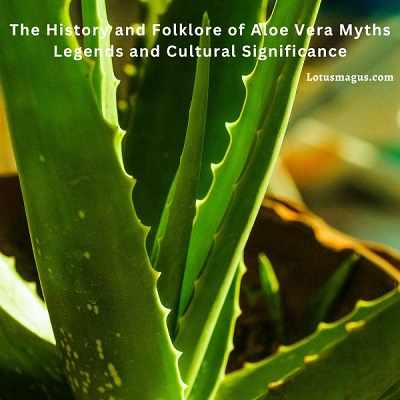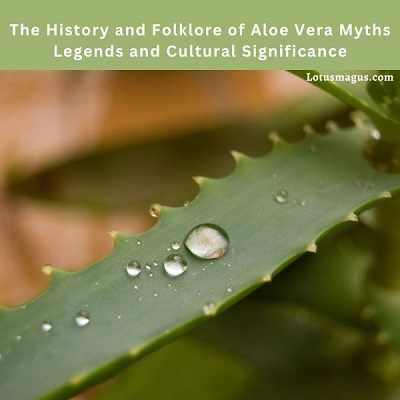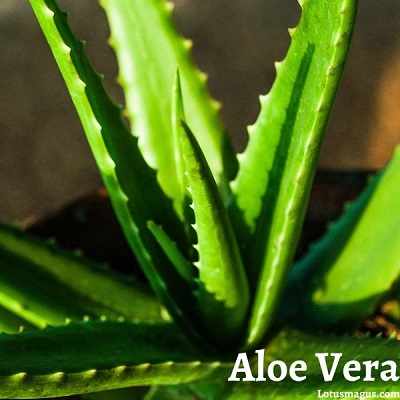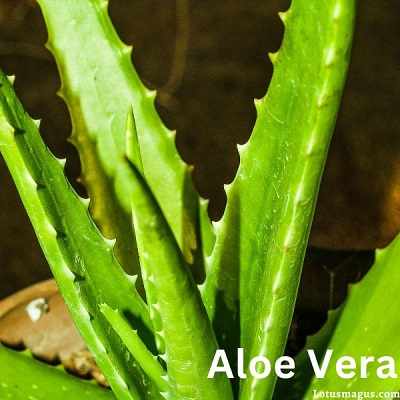As an admirer of botanical remedies and folk traditions, I have always found the Aloe vera plant intriguing. In this article, we will explore the myths, legends, and cultural significance associated with Aloe vera throughout history.
Definition of Aloe Vera
Aloe Vera is a succulent plant species from the genus Aloe. Recognizable by its thick and fleshy green leaves, it is known for its therapeutic and medicinal uses. Aloe vera is found in various parts of the world, including Africa, Asia, Europe, Latin America, and Australia. Its historical importance can be traced back thousands of years through fossilized remains.
Aloe vera has earned the nickname “the silent healer” in many cultures, with stories of its healing abilities passed down through folklore and historical accounts. Scientific studies have extensively investigated the chemical compounds present in Aloe vera, particularly their potential benefits for skin health, hydration, and antimicrobial and anti-inflammatory effects. However, further research is needed to draw conclusions about its efficacy on heart rate variability depending on whether it is consumed orally or applied topically.
Overview of the plant’s history
Aloe vera has a rich and mysterious history, revered by humans since ancient times. It holds great significance in cultures worldwide and continues to be utilized for its medicinal properties. In this article, we will delve into the history, folklore, and cultural importance of Aloe vera, from its origins in Ancient Egypt to its modern medical applications.
We will explore the various myths and legends associated with the plant and examine current research on its uses. Additionally, we will provide tips on utilizing Aloe vera for personal health needs, such as treating burns or addressing skin issues.
By delving into the knowledge surrounding this powerful healing herb, we can gain insight into humanity’s ancient connection with these remarkable plants and understand why they remain cherished to this day.

Myths and Legends
Aloe vera is one of the oldest known medicinal plants, with a history spanning thousands of years. It has been the subject of numerous myths and legends, holding deep cultural significance in various cultures.
Ancient Egyptian Mythology
Few plants have a history as rich as Aloe vera. This species has been revered for centuries, captivating the imaginations of ancient and modern civilizations alike. One prevalent myth associates Aloe vera with Ancient Egypt.
According to some beliefs, Cleopatra used aloe vera-based remedies to maintain her beauty, and it is still venerated by Egyptian women today as a symbol of youthfulness and purity. It was also customary to present aloe vera leaves as offerings during religious ceremonies at temples dedicated to revered goddesses such as Isis, Hera, or Hathor.
While Aloe vera’s significance is strongly tied to Ancient Egypt, it has also found a place in Ayurvedic medicine, modern beauty care products, and food supplements. Its extensive history and legends continue to shape its cultural importance.

Greek and Roman Mythology
Aloe vera features prominently in Greek and Roman mythology. According to legend, the Greek gods used aloe vera to treat wounds and alleviate pain. The Romans referred to it as the “plant of immortality” due to their belief that its consumption could lead to a longer life.
Though its exact origin remains unknown, aloe vera has been used for over 6,000 years. Ancient Egyptians harvested aloe vera from the Mediterranean Sea and employed it to treat skin ailments, including sunburns and inflammatory conditions. Cleopatra herself incorporated it into her beauty routine.
The use of aloe vera is documented in ancient texts like The Bible and The Quran, with references to its medicinal properties. Cultures throughout history have utilized Aloe vera medicinally and in traditional rituals. It is considered lucky and protective against evil forces in many shamanistic traditions, enriching the plant’s folkloric customs across civilizations.
Chinese and Indian Folklore
Chinese and Indian cultures have cultivated and utilized aloe vera for centuries, considering it not only a natural remedy but also a symbol of beauty, healing, and luck. In Chinese culture, aloe vera is seen as a harbinger of good luck, and it has played a vital role in Chinese folk medicine for centuries. Aloe plants are believed to bring prosperity when placed inside or outside homes.
Aloe vera holds deep spiritual and religious significance in India, celebrated during festivals like Diwali and often given as gifts on special occasions.
In many regions of Asia where aloe vera grows natively, it has been used for centuries to treat burns, cuts, and skin irritations, thanks to its hydrating and detoxifying properties. It is believed to release toxins from the body and promote healing. Aloe vera’s aroma is said to attract positive energy, leading to the practice of gifting aloe plants during joyous celebrations.
Cultural Significance
Aloe vera holds significant importance in folklore, referenced in ancient texts and modern literature. It symbolizes life, healing, and hope, celebrated for its diverse uses across cultures and societies.

Religious Significance
Aloe vera is deeply ingrained in religious history, featuring in major monotheistic religions. The Bible contains references to “aloes,” believed to refer to aloe vera, which was looted from a commercial caravan by King Solomon’s armies. Additionally, Nicodemus used a mixture of myrrh and aloes when burying Jesus, according to the New Testament.
In Islam, the Qur’an mentions the “succulent plant of aloes” as a balm for the pains of death, with healing benefits praised by Mohammed. Hinduism and Buddhism also acknowledge Aloe vera’s healing properties. Some suggest that Lord Vishnu’s four arms represent the four main medicinal substances, including Aloe vera.
In African countries like Eritrea and Ethiopia, Aloe vera has been passed down through generations as a vital medicinal herb for treating common ailments. African shamans have used it in rituals to connect with the spirit world. Aloe vera also finds use in spells or rituals related to love and fertility.
Ancient cultures in India, Persia, and Egypt used Aloe vera in fire rituals during marriage ceremonies and stage performances, associated with goddesses like Isis and Hathor. Fresh-cut aloe blossom garlands were offered at temples, immortalized in hieroglyphics.
Medicinal Uses

Aloe vera has been valued for its medicinal properties for centuries. Its gel-like substance is widely used to treat skin conditions and aid in wound healing. Ancient civilizations, including the Egyptians, Greeks, and Romans, used aloe vera for various ailments.
In Egypt, the plant held spiritual significance and was often placed in tombs to protect the deceased. Healers considered it a cure-all and prescribed it for a range of diseases. Today, scientific research continues to explore aloe vera’s potential benefits for burns, rashes, fungal infections, and cuts when applied topically.
Traditionally, aloe vera has also been used to aid digestion, reduce inflammation, manage blood sugar levels, and potentially fight cancer cells. Its history as a natural remedy makes it essential to explore its medical applications beyond traditional contexts.
Beauty and Health Benefits
Aloe vera has a long history of use for beauty and health purposes. Its reputation as the “plant of immortality” dates back to Ancient Egypt, where it was depicted in hieroglyphic wall paintings. Cleopatra is said to have used aloe gel to maintain her skin’s beauty.
In India, aloe vera is believed to have healing properties for both internal and external diseases. Many Hindu communities continue to use it as a remedy for digestive issues and dry skin. African tribes attribute its anti-inflammatory properties to voodoo powers and incorporate it into remedies for ailments.
Chinese and Japanese cultures also embrace aloe vera’s healing powers, using its gel in medicinal preparations and herbal mixtures. Ancient texts, like Homer’s Odyssey, mention aloe’s healing abilities. Stories persist of aloe curing conditions like asthma and bruises, making it an important symbol within cultural heritage.
Conclusion
After extensive research into the history and folklore of Aloe vera, it is clear that this plant holds immense value. It has played a significant role in cultures worldwide, providing practical and spiritual benefits.
Aloe vera’s history, myths, and legends span thousands of years. From Ancient Egypt to modern times, its medicinal properties have been celebrated and utilized. The plant’s cultural significance includes religious references, ritualistic practices, and its association with luck and protection against evil forces.
By delving into the world of Aloe vera, we gain a deeper appreciation for its historical and cultural importance. It continues to impact our lives, offering holistic wellness and serving as a symbol of healing and hope.
Related Posts:
Why Your Aloe Plant Fell Apart: Overwatering and How to Fix It
How To Fix An Overwatered Aloe Plant: Pictures, Watering Schedule
The Benefits of Aloe Vera From Skincare to Digestive Health
How to Harvest and Use Aloe Vera Gel A Step by Step Guide
A Beginners Guide to Growing Aloe Vera Tips and Tricks for Success
The History and Folklore of Aloe Vera Myths Legends and Cultural Significance
Is Aloe Vera Flower Luck? – Know The Reason Behind It
Aloe Vera Meaning (What Does It Symbolize Spiritually In Different Cultures?)
Aloe Vera Flowers Uses and Medicinal Benefits
What To Do When Aloe is Flowering? 5 Ways to Keep Blooming
Aloe Vera Plant Care – 5 Tips to Grow Them Indoors
Can You Freeze Aloe Vera Plant – Store and Preserve Gel, Leaf
Aloe Vera Plant Varieties Pictures ( Capitata var. quartziticola, Crosby’s prolific)
Leggy Aloe Vera – Stem Too Long(How to Fix), Repotting Plant
Plants that Look Like Aloe Vera – 7 Similar Succulent(Pictures)
Aloe Vera Flower: What to do, How often It Bloom? Care, Grow (uk)
